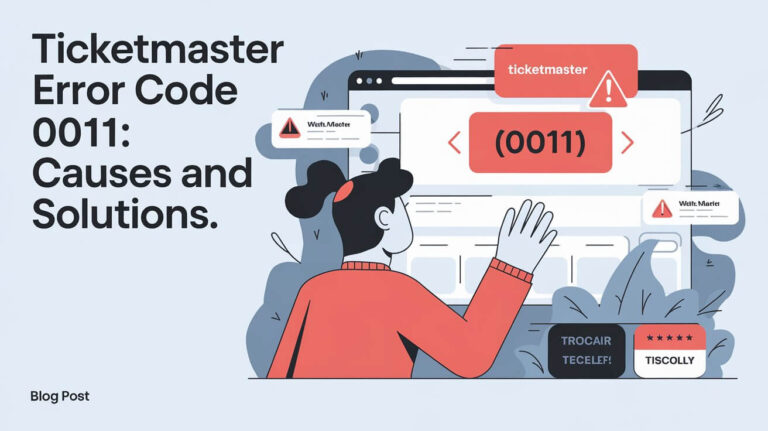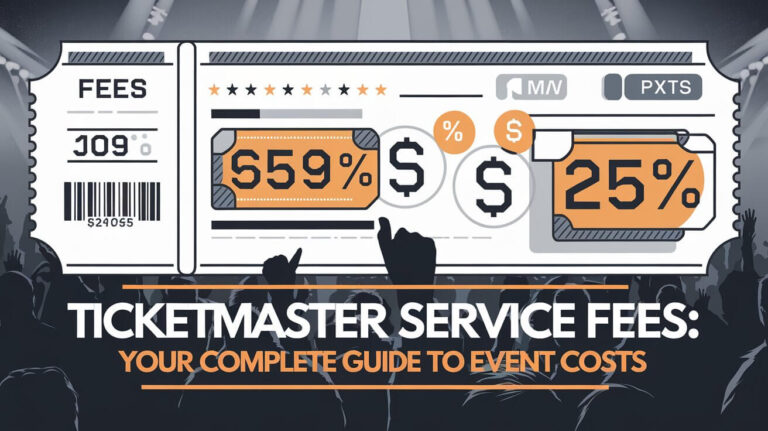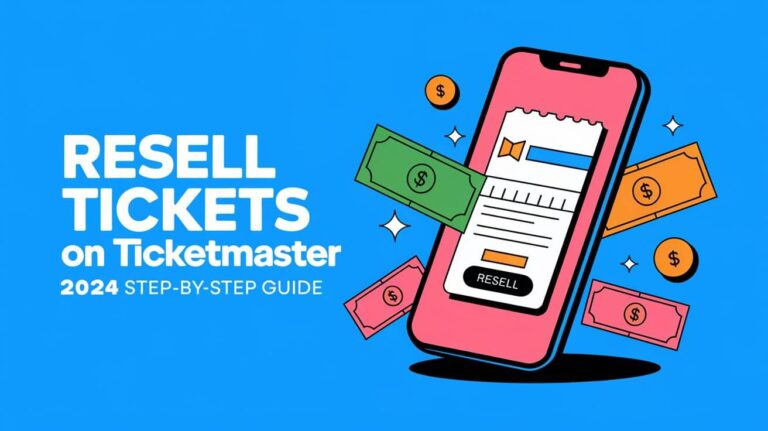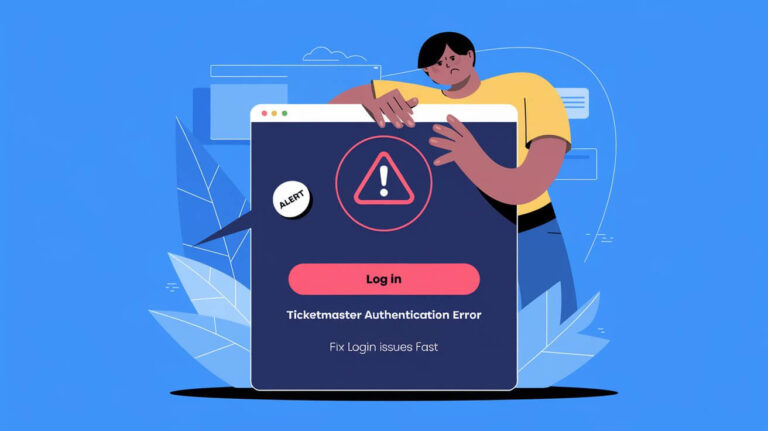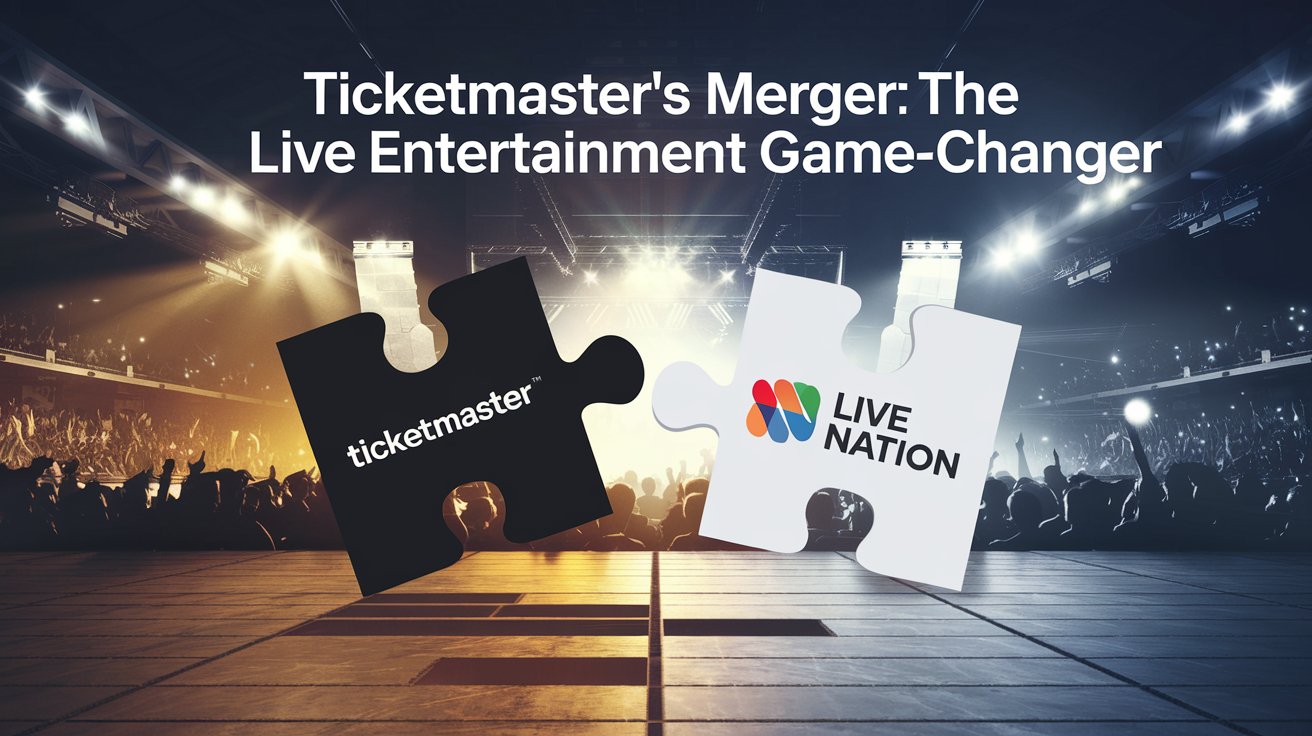
Ticketmaster merged with Live Nation in 2010, creating Live Nation Entertainment, a powerhouse in the live events industry. This merger reshaped the landscape of concert promotions, ticketing, and artist management. Let’s explore Ticketmaster’s journey, its landmark merger, and the lasting impact on the entertainment world.
The Early Days of Ticketmaster
Ticketmaster’s story begins in 1976 when it entered the ticketing scene. At the time, another company called Ticketron dominated the market. Ticketmaster, however, had a different approach that would soon revolutionize the industry.
Ticketmaster’s Acquisition of Ticketron
In 1991, Ticketmaster made a bold move. It bought out its main rival, Ticketron. This acquisition marked a turning point, cementing Ticketmaster’s position as the go-to ticketing service for live events.
Dominating the Ticketing Industry
After acquiring Ticketron, Ticketmaster’s growth skyrocketed. The company struck deals with major venues and promoters, becoming the primary ticketing platform for countless events across the United States.
The Game-Changing Merger: Ticketmaster and Live Nation
While Ticketmaster was building its ticketing empire, another company was making waves in the concert promotion world: Live Nation.
Live Nation’s Rise in the Concert Promotion World
Live Nation started as SFX Entertainment in 1996. Its goal? To create a national network of concert promoters. By 2005, the company had transformed into Live Nation and was quickly becoming a major player in the live entertainment industry.
The 2010 Merger Deal
On January 25, 2010, Ticketmaster and Live Nation officially tied the knot. The $2.5 billion deal brought together the world’s largest ticketing company and the biggest concert promoter under one roof.
Regulatory Scrutiny and DOJ Approval
The merger didn’t happen without a hitch. The Department of Justice (DOJ) closely examined the deal, worried about its impact on competition. After a thorough review, the DOJ approved the merger with some conditions to protect consumers and maintain a competitive market.
Impact of the Ticketmaster-Live Nation Merger
The union of Ticketmaster and Live Nation sent shockwaves through the entertainment industry. Let’s look at some of the key outcomes.
Creation of Live Nation Entertainment
The merger birthed a new entity: Live Nation Entertainment. This company now controlled a vast network of venues, ticketing services, and artist management deals.
Market Dominance and Controversies
Live Nation Entertainment quickly became a dominant force. With control over various aspects of live events, from ticket sales to venue management, the company faced accusations of monopolistic practices.
Effects on Artists, Venues, and Consumers
The merger’s impact reached far and wide. Artists found themselves dealing with a more powerful entity for tour management. Venues had fewer options for ticketing services. Consumers saw changes in ticket prices and fees.
Post-Merger Acquisitions and Partnerships
Live Nation Entertainment didn’t stop growing after the 2010 merger. The company continued to expand its reach through strategic acquisitions and partnerships.
Expanding the Live Entertainment Empire
In the years following the merger, Live Nation Entertainment bought out several smaller promoters and ticketing companies. These moves further solidified its position in the market.
Ticketmaster’s Technology Investments
To stay ahead in the digital age, Ticketmaster poured resources into tech upgrades. From mobile ticketing to virtual queuing systems, the company aimed to improve the ticket-buying experience.
Challenges and Criticisms Faced by the Merged Entity
Despite its success, Live Nation Entertainment hasn’t been without its share of problems. Let’s look at some of the major issues the company has faced.
Antitrust Concerns and Legal Battles
The company’s size and market power have led to ongoing antitrust scrutiny. In 2019, the DOJ alleged that Live Nation had violated the terms of its merger agreement, leading to a settlement and extended oversight.
The Taylor Swift Ticketing Fiasco
In November 2022, Ticketmaster’s systems crashed during presales for Taylor Swift’s Eras Tour. This high-profile incident reignited debates about the company’s market dominance and technological capabilities.
Calls for Breaking Up Live Nation Entertainment
Following the Taylor Swift incident and other controversies, some lawmakers and industry figures have called for breaking up Live Nation Entertainment. They argue that the company wields too much power in the live events space.
The Future of Ticketmaster and Live Nation
As we look ahead, what’s next for this entertainment behemoth? Let’s consider some possibilities.
Adapting to a Changing Live Entertainment Landscape
The COVID-19 pandemic forced rapid changes in the live events industry. Live Nation Entertainment will need to continue adapting to new realities, including virtual concerts and hybrid events.
Potential Regulatory Actions and Industry Shifts
With increased scrutiny from regulators and lawmakers, Live Nation Entertainment may face new challenges. The company might need to make changes to its business practices to address competition concerns.
bottom line
Ticketmaster’s merger with Live Nation reshaped the live entertainment landscape. The deal created a powerful entity controlling multiple aspects of the live event experience. While this has led to innovations and efficiencies, it’s also sparked ongoing debates about competition and consumer choice in the industry.
The story of Ticketmaster’s merger history shows how consolidation can dramatically impact an industry. As discussions about the company’s market power continue, the live events world will be watching to see what happens next in this ongoing saga.
From its early days competing with Ticketron to its current position as part of Live Nation Entertainment, Ticketmaster has been at the center of major shifts in how we experience live events. As the entertainment world continues to evolve, the impact of this landmark merger will likely be felt for years to come.



